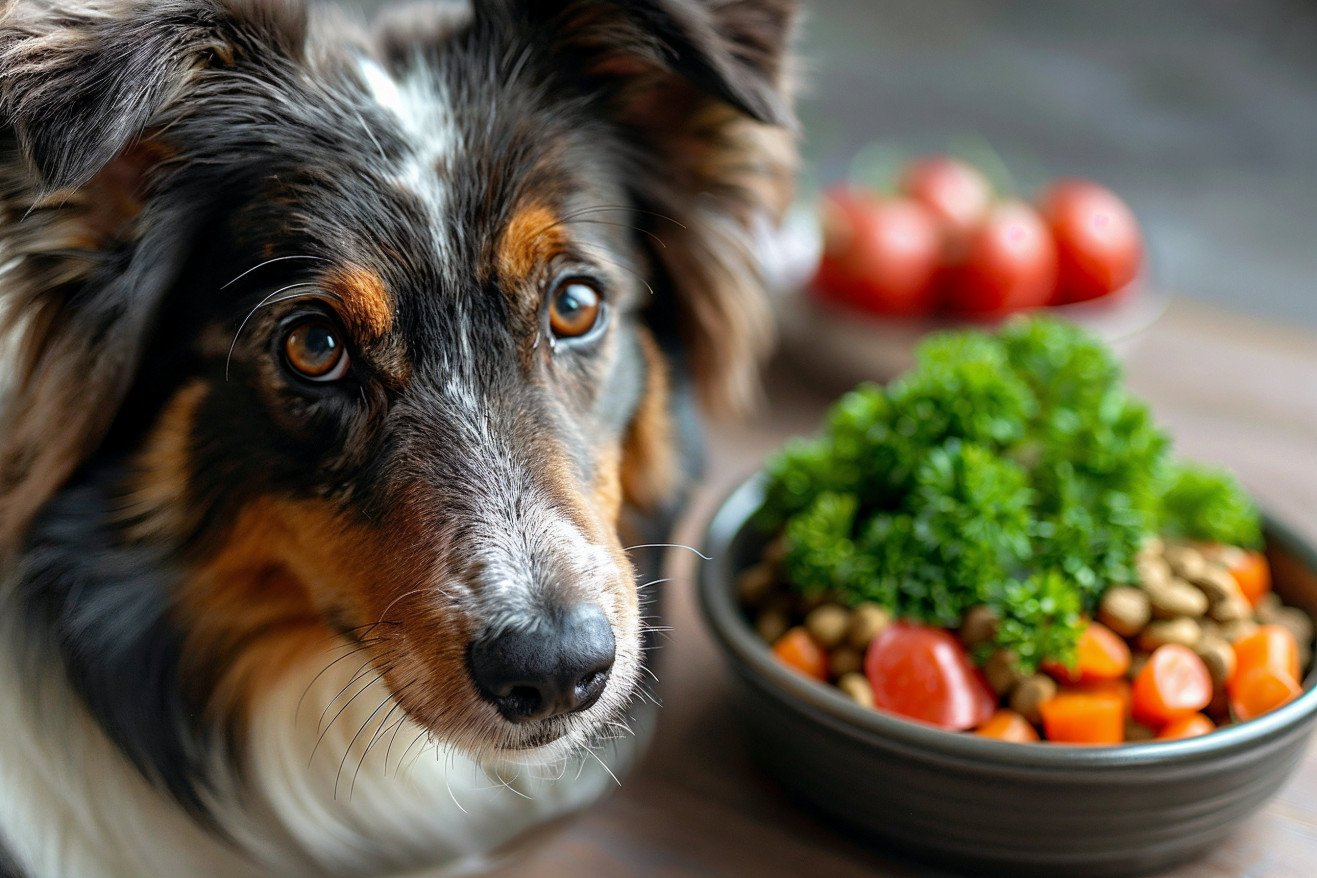Lyme Disease in Dogs: The Best Diet and Supplements for Recovery
2 June 2024 • Updated 31 May 2024

If your dog has Lyme disease, you may be wondering what kind of diet will help them heal. The best diet for dogs with Lyme disease is a healthy one that includes lean proteins, vegetables, and supplements like glucosamine and omega fatty acids that can help reduce inflammation and support joint health.
In this article, we will take a look at the research and advice from veterinarians to determine the best foods and supplements to help boost your dog's immune system and alleviate the symptoms of Lyme disease. By looking at the research and referencing veterinarians, this article will help you understand how to make sure your dog gets the best nutrition to help them heal and stay healthy in the long run.
What is the best diet for dogs with Lyme disease?
Signs of Lyme Disease in Dogs
Lyme disease in dogs is caused by the bacteria Borrelia burgdorferi and is transmitted by ticks. The most common signs of Lyme disease in dogs are fever, loss of appetite, vomiting, and depression, as well as lameness due to inflammation in the joints, which may be a sign of kidney disease.
The disease is treated with a minimum of 4 weeks of antibiotics, such as doxycycline, amoxicillin, or azithromycin. It’s important to start antibiotic treatment as soon as possible, because if Lyme disease is left untreated, it can lead to kidney failure and chronic arthritis.
Dogs are still at risk after treatment because they can be reinfected by another infected tick and need to be treated with antibiotics again. However, if Lyme disease is diagnosed early and treated appropriately, most dogs will recover completely.
How Diet Can Help Dogs Recover From Lyme Disease
A healthy, well-balanced diet can help the dog's immune system and overall recovery from Lyme disease. Dogs Naturally Magazine notes that there are three things that are necessary for a successful treatment of Lyme disease in dogs: reducing inflammation, supporting collagen, and boosting immune function.
Lean proteins such as chicken, turkey, and fish can provide the necessary nutrients to heal and maintain muscle mass. Medical News Today notes that an anti-inflammatory diet that is rich in whole foods can help reduce inflammation. Vegetables like sweet potatoes, carrots, and spinach can provide antioxidants and fiber to help reduce inflammation even further.
Omega-3 fatty acids from fish oil or flaxseed can also help reduce joint pain and swelling. Dr. Judy Morgan's Naturally Healthy Pets recommends supplements such as glucosamine, chondroitin, and MSM to help support joint health and mobility while the dog is recovering. By taking the right dietary steps, dog owners can ensure that their pets have the best chance of recovering from Lyme disease.
Best Dog Food Brands and Formulas
When it comes to choosing dog food for a dog with Lyme disease, you'll want to make sure to choose a high-quality, grain-free brand that uses whole, natural ingredients. Wellness Pet Food says that brands like Orijen, Acana, and Zignature all make formulas that are great for sensitive dogs, as they use lean proteins and limited ingredients.
These nutrient-rich formulas often include omega-3 fatty acids from fish or flaxseed, which can help with inflammation. The Pet Health and Nutrition Center also suggests looking into freeze-dried or raw dog food brands like Stella & Chewy's or Primal, as they can offer additional health benefits.
When it comes to finding the best dog food for your dog, it's always a good idea to talk to your vet, as they can help you find the best brand and formula for your dog based on their specific needs and where they are in their recovery from Lyme disease. That way, you can make sure that you're feeding your dog a diet that will help support their immune system and overall recovery.
Helpful Supplements for Dogs With Lyme Disease
Probiotics such as Acidophilus can help rebalance the gut microbiome after a course of antibiotics and support the immune system. Per Earth Animal, a probiotic supplement can help maintain a healthy gut, prevent or heal diarrhea and vomiting, and boost your dog's immune system during Lyme disease treatment.
Glucosamine and chondroitin supplements can help maintain healthy joints and reduce the inflammation that results from Lyme disease. BeChewy explains that Lyme disease often causes arthritis because bacteria move through the joints, so supplements that support collagen-rich areas can be helpful.
Omega-3 fatty acids from fish oil or krill oil can also help reduce joint pain and inflammation. Dr. Judy Morgan's Naturally Healthy Pets includes omega-3s in the anti-inflammatory diet she recommends for dogs with Lyme disease.
Herbs like turmeric, boswellia, and Japanese knotweed root have anti-inflammatory properties that can help with Lyme disease. Per Ask Ariel, Japanese knotweed root is particularly effective because it has anti-microbial, anti-inflammatory and cardioprotective properties.
To ensure that you're using supplements safely and effectively, it's best to work with a holistic vet who can offer personalized supplement recommendations and dosages based on your dog's unique health situation and where they are in their recovery from Lyme disease.
Dietary Management for Chronic or Recurring Lyme Disease
Dogs with chronic or recurring Lyme disease may need to be on a special diet and supplements for the long term. Ask Ariel recommends a fresh, whole-food diet that includes lean meats, vegetables, and healthy fats to help reduce inflammation and promote healing. In addition, dogs with chronic Lyme disease may benefit from supplements like resveratrol, olive leaf extract, collagen, and probiotics.
Resveratrol from Japanese knotweed root has "anti-microbial, anti-inflammatory and cardioprotective properties" that can be helpful, while olive leaf extract has antibacterial and immune-boosting properties. Collagen supplements can help with joint support, as the Borrelia bacteria can break down collagen. Probiotics like Power Probiotic can also help restore healthy gut bacteria during treatment.
Herbs like astragalus, teasel, cat's claw, and Japanese knotweed root may also help boost the immune system and reduce inflammation. It's also important to make sure that kidney function is monitored regularly, as 1800PetMeds explains that dogs with Lyme disease may need to have their diet and supplements adjusted if they develop kidney problems due to the disease.
Conclusion: The Importance of Nutrition for Lyme Disease Recovery
A well-balanced, nutrient-rich diet is crucial for supporting a dog's recovery from Lyme disease. Lean proteins, vegetables, and supplements like glucosamine and omega-3s can help reduce inflammation, support joint health, and boost the immune system. Consulting with a veterinarian and considering a holistic approach can help tailor the diet and supplements to your dog's specific needs.
Consistency and patience are key, as managing Lyme disease may require long-term dietary adjustments and monitoring. By prioritizing proper nutrition, pet owners can play an active role in their dog's journey to recovery and improved overall well-being.


